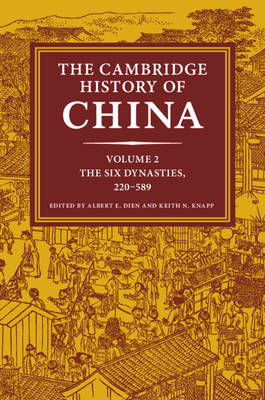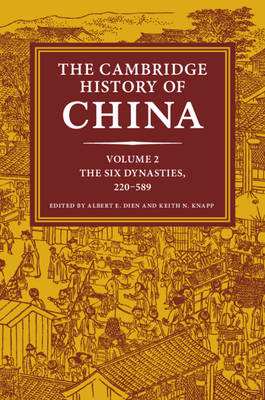
Je cadeautjes zeker op tijd in huis hebben voor de feestdagen? Kom langs in onze winkels en vind het perfecte geschenk!
- Afhalen na 1 uur in een winkel met voorraad
- Gratis thuislevering in België vanaf € 30
- Ruim aanbod met 7 miljoen producten
Je cadeautjes zeker op tijd in huis hebben voor de feestdagen? Kom langs in onze winkels en vind het perfecte geschenk!
- Afhalen na 1 uur in een winkel met voorraad
- Gratis thuislevering in België vanaf € 30
- Ruim aanbod met 7 miljoen producten
Zoeken
The Cambridge History of China
€ 310,95
+ 621 punten
Omschrijving
The Six Dynasties Period (220-589 CE) is one of the most complex in Chinese history. Written by leading scholars from across the globe, the essays in this volume cover nearly every aspect of the period, including politics, foreign relations, warfare, agriculture, gender, art, philosophy, material culture, local society, and music. While acknowledging the era's political chaos, these essays indicate that this was a transformative period when Chinese culture was significantly changed and enriched by foreign peoples and ideas. It was also a time when history and literature became recognized as independent subjects and religion was transformed by the domestication of Buddhism and the formation of organized Daoism. Many of the trends that shaped the rest of imperial China's history have their origins in this era, such as the commercial vibrancy of southern China, the separation of history and literature from classical studies, and the growing importance of women in politics and religion.
Specificaties
Betrokkenen
- Uitgeverij:
Inhoud
- Aantal bladzijden:
- 960
- Taal:
- Engels
- Reeks:
Eigenschappen
- Productcode (EAN):
- 9781107020771
- Verschijningsdatum:
- 7/11/2019
- Uitvoering:
- Hardcover
- Formaat:
- Genaaid
- Afmetingen:
- 157 mm x 231 mm
- Gewicht:
- 1406 g

Alleen bij Standaard Boekhandel
+ 621 punten op je klantenkaart van Standaard Boekhandel
Beoordelingen
We publiceren alleen reviews die voldoen aan de voorwaarden voor reviews. Bekijk onze voorwaarden voor reviews.








